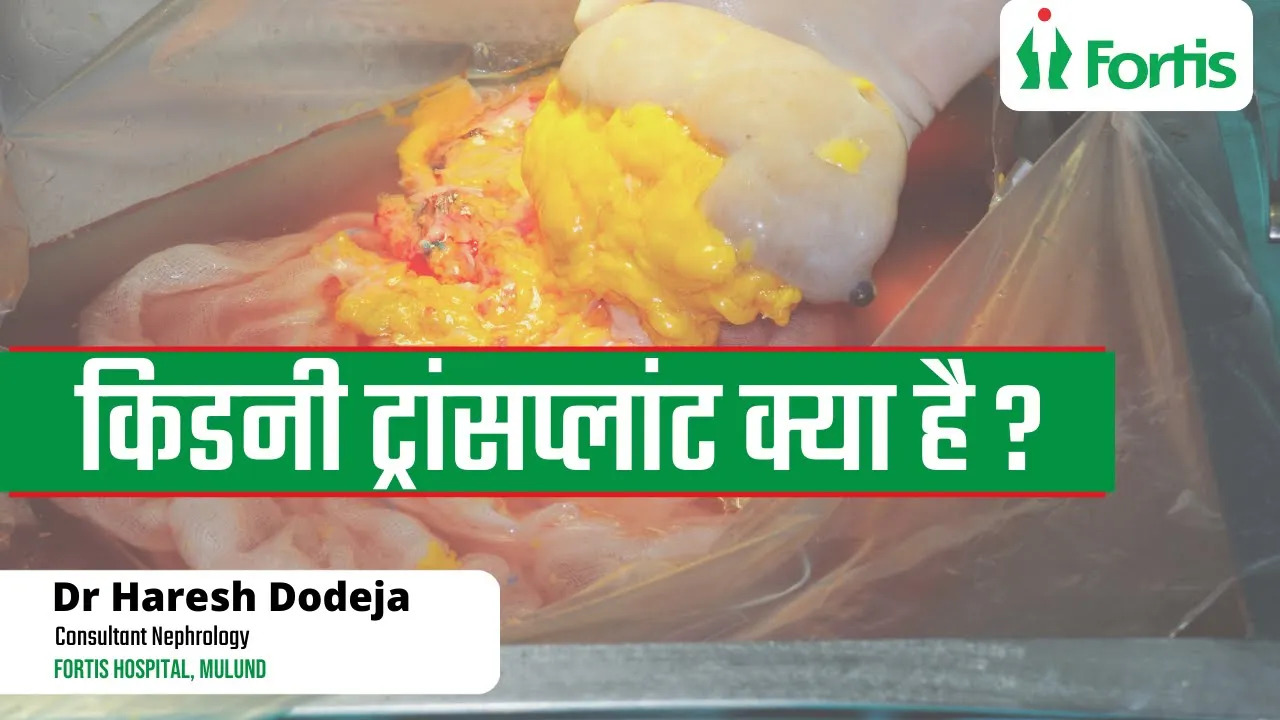In this video, Dr Haresh Dodeja, consultant of nephrology at Fortis hospital, Mulund provides us with significant guidance about kidney transplants. A kidney is one of the most important parts of the human body, and it is important to know about the condition of your kidney, whether is it working properly or not. The first thing is that a kidney transplant is necessary for those people whose kidney is damaged by more than 90%. Suppose the kidney provider is a family member. In that case, there are some general tests like basic health check-ups, sugar level, kidney condition, liver condition, ECG, X-ray, ECG, sonography, and urinary track test. Many tests in kidney transplants don't match the patient's requirements like blood tests and HLA the doctor explains that even in such cases the kidney can be transplanted safely. If there is a female patient then there is a little change in tests, for women tests like pap smear and mammography are also done. If the kidney donor's both kidneys are working less than 30% then the donor is not eligible to donate the kidney. After that CT scan is to be done to know the complete information of the kidney of the donor by which it can be understood what kind of surgery is to be done whether it should be open surgery, robotic surgery, or if the surgery can be done or not. The kidney donor age should be 18-65 according to the law but in some cases, if the donor is more than 65 then it depends on the health of the donor, if it is good according to the tests then the donor can donate their kidney for transplant.

